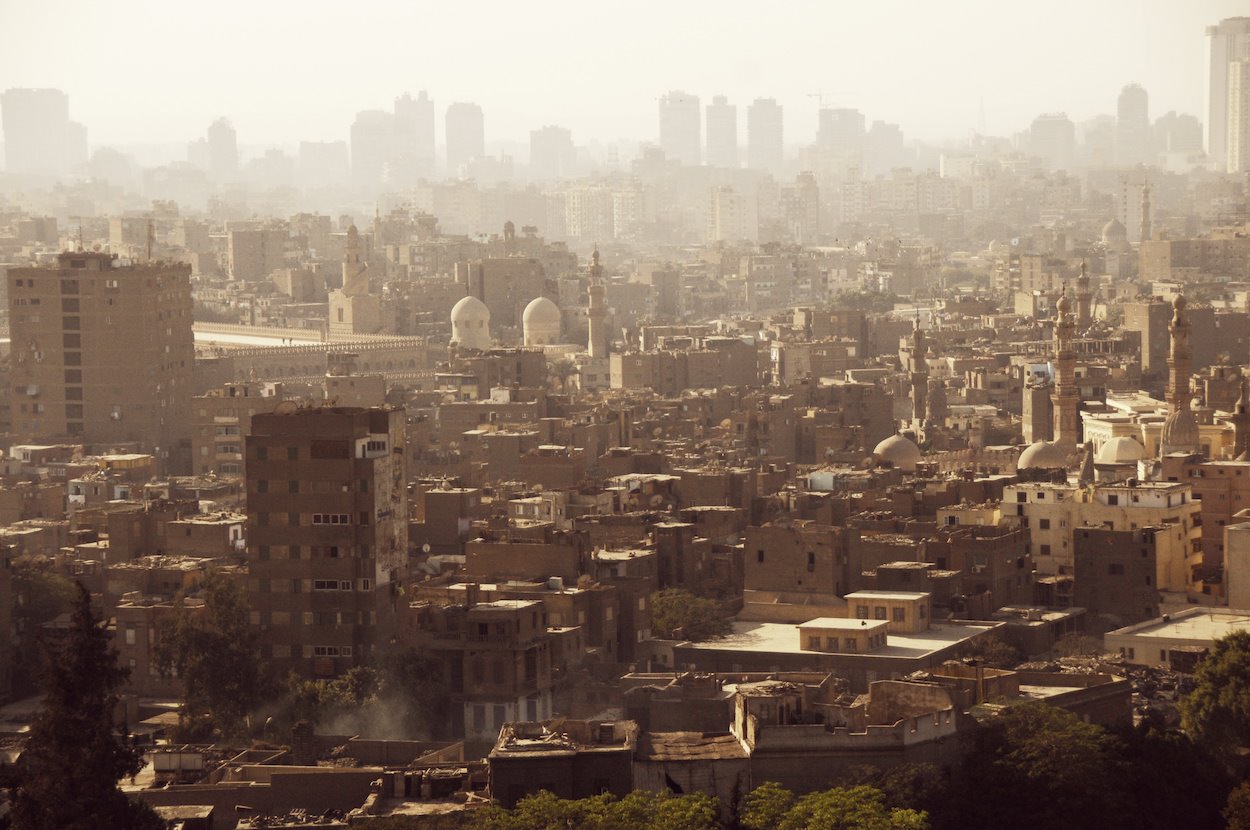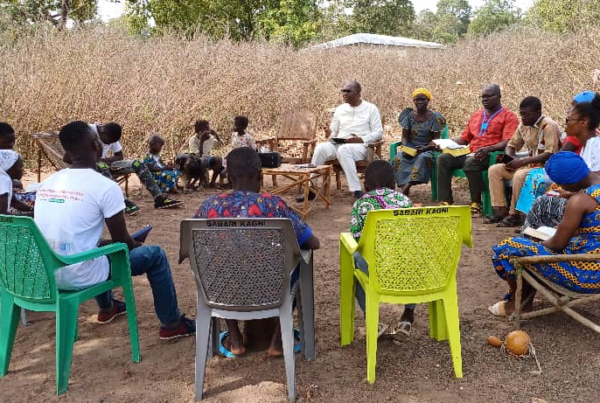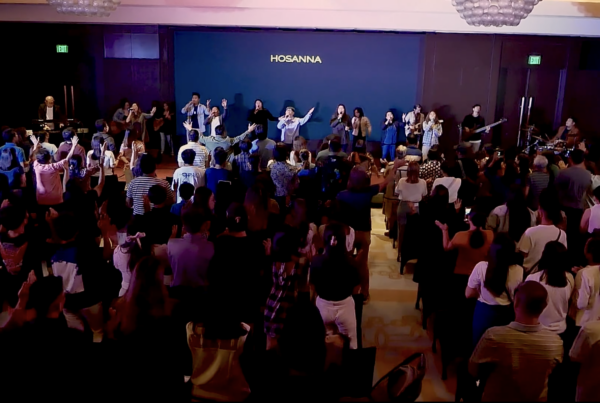There is no such thing as a Christian who is not a missionary. By nature of the Great Commission, every Christian is sent on mission to make disciples and be witnesses of God’s saving power through Christ. Yet the term “missionary” often brings to mind names like Hudson Taylor, Amy Carmichael or George Lisle – people who crossed continents and borders to preach the gospel in risky places. The legacy of such people must be preserved as sources of inspiration of what obedience to Jesus’ commandment looks like. But it is Jesus’ commandment that remains constant. The methods we use, the places we go and functions we play will differ according to our calling, gifts, passion, place and time in history. Nonetheless, all those who have been reconciled to God in Christ, placed and serving in local communities are required to reach out to the lost. Put even more simply: the called out ones are also the sent out ones.
There is no such thing as a Christian who is not a missionary.
It naturally follows then that church leaders, and pastors in particular, ought to be at the forefront of leading this charge. Church planters in this vein are not only “planting a church” but are carrying out the most biblical and sustainable way of fulfilling this missional mandate. This, I believe, is the core reason Acts 29 exists. We plant churches to fulfill the Great Commission. We believe that disciples grow into maturity in and through the local church, which in turn should lead to the planting of more churches in which more disciples can grow and plant even more churches! That’s the big picture, but what does that look like to live like a missionary in your day to day life? How, as missionaries, can we engage our cities with the gospel? There are three practical steps from Paul’s ministry at Ephesus (Acts 19:8-41) that we can learn from:
We plant churches to fulfill the Great Commission
Be Strategic
Though not explicitly stated, there is good reason to believe that Paul was intentional about his choice of this important city as a base of operations for his ministry to Asia. Before now a trend had begun to emerge with Paul having already visited cities like Antioch, Iconium, Lystra, Derbe, Philippi, Thessalonica, Athens and Corinth with the intention of still going to Rome via Jerusalem (Acts 19:21). The reason for this is quite simple, so simple that it can be missed – the Great Commission is about people, thus Paul went where people were most concentrated. Paul’s city focus did not, however, turn him into an urban snob. On the contrary, since Ephesus was the commercial center for the entire Asia Minor province it meant the channels used for the flow of goods and services could be simultaneously used for gospel movement to the other towns and cities of the region through the new converts. This is why “all the Jews and Greeks who lived in the province of Asia heard the word of the Lord” without any record of Paul visiting towns in the province like Colossae and Laodicea (Acts 19:10b; Colossians 1:5-7, 2:1). Also worth observing was Paul’s strategic (though initially circumstantial) relocation from inside the exclusive walls of the synagogue into the inclusive Hall of Tyrannus. Commentator David Peterson points out that Paul’s use of this venue and the scholarly people he engaged there enabled him to attract the attention of a wider group of inquirers in the city. That is, as long as he remained in the synagogue he was limited to reaching only a certain subculture of the city which hardly reflected what it meant to live in Ephesus. Paul’s flexible inclusivity was directed at cultural barriers that hindered people from coming to hear the message but not the content of the message itself. When they did come, the message of the “Kingdom of God” that was preached in the synagogue (Acts 19:8) was the “Word of the Lord” taught in Tyrannus’ hall. Three years of going where people are combined with being reasonably flexible with his methods resulted in “the most extensive [missional] influence so far recorded in Acts” according to David Peterson. Though we firmly and necessarily believe in God’s providential working to fulfill the spread of the gospel, we must also hold to the same truth that his Spirit works through both our intentional proactive and circumstantial responsive planning.
Prepare for Battle
Battles are messy. Battles against idols are even messier.
In the midst of cultural engagement, strategic planning, fundraising and administrative duties it can be easy to forget what the Great Commission is from a cosmic standpoint: i.e. a battle. The spread of the “Word of the Lord” in Acts represents territory reclamation of the kingdom of God over the kingdom of darkness. Battles are messy. Battles against idols are even messier. Confronting the imposing figure of Artemis and what she stood for in Ephesus (Acts 19:35) is no trivial matter. Paul was confronting both idols of the Ephesians’ hearts and the cultural idol(s) of their city. Our tasks as church planters is no less different. When we answer the call to establish new churches in cities, the realization of flourishing communities of love where members care for and are accountable to one another, and where idols of approval, success, security and comfort are being defeated by the power of the gospel doesn’t go unnoticed in the enemy’s kingdom, and always provokes a reaction. Since idolatry is the primal sin, it is Satan’s most effective enslaving weapon in keeping people alienated from God. Gospel ministry however, liberates people and cultures from this stronghold, reconciling them back to God and thus gaining the attention of an irate enemy. As Paul began witnessing the gospel’s success through conversions, miracles, healings, demonic exorcisms and vocation transformation (Acts 19:12-13, 17-19) the enemy fought back with the twin arrows of deception (Acts 19:13-17) and persecution (Acts 19:23-41). It’s an age-old tactic which he continues to employ to this day. Whereas Paul experienced the deception of false exorcisms we may experience false teachings like the Prosperity Gospel, Moralistic Therapeutic Deism or various syncretistic forms of the Gospel. Whereas Paul experienced the persecution of the riot we may too may experience physical threats to our lives or cultural marginalization, withdrawal of financial support or even attacks on our health. Therefore as church planters we must be prepared for the battle before us. In the midst of constant deception and persecution Paul, not without a few tears, did not cease declare the gospel publicly and privately with humility (Acts 20:18-21). As we engage with our city we must be keen to identify both heart and cultural idols and how they do not ultimately satisfy or save. We must be adept at knowing how the gospel speaks to these idols in particular so that our preaching and pastoring will possess a penetrative edge to them. We must people of ceaseless prayer in this spiritual warfare. Not doing so will only reveal that we too are guilty of erecting our own idols of knowledge and pragmatism. Paul, all too keen to avoid such, asked for prayer when writing about spiritual warfare to the Ephesian Christians (Ephesians 6:18-19).
Rest in Christ’s Victory
In Christianity, God in Christ lost his majesty for the salvation of his people.
But fighting can be wearisome, especially if you are planting in urban centers in the Middle East, Western Europe or post-Christian parts of the US where gospel fruit takes an awfully long time to harvest. How can I know that my labour is not in vain and that Satan is not winning this cosmic battle? Where does the power to persevere in mission come from? When Demetrius started to stoke the fires of the riot that eventually took place he pointed out that if the Ephesians weren’t careful the gospel that Paul preached will not only discredit their trade and the temple, but that Artemis “will be robbed of her divine majesty” (Acts 19:27). He had never uttered a more accurate truth in his entire life! In response to this threat he essentially tells the others “we cannot and must not permit this to happen” since it is the obligation and duty of Artemis’ worshippers to work to preserve the majesty of their god. On this point the difference with Christianity could not be starker. In other religions adherents work for the salvation of the majesty of their gods. In Christianity, God in Christ lost his majesty for the salvation of his people. And in doing this he fought the Great Cosmic War against the devil and his kingdom and defeated them decisively and eternally. Now, we his disciples who are sent to plant churches can confidently engage in the mini-battles because the war has been won. Our success is rooted in his success and our mission will be successful because it is a mere extension of his victorious mission (John 20:21). Like Paul we must not look out at the various persecutions we will have to suffer or the multitudes of deception pervading our cities as the measure of our victory, instead we must look to the same gospel we proclaim as the very source of our power, success and encouragement.
Femi Osunnuyi is Lead Pastor of City Church, Lagos, Nigeria and a member of Acts 29 Emerging Regions Network Leadership Team. You can follow Femi on Twitter @femionzion











